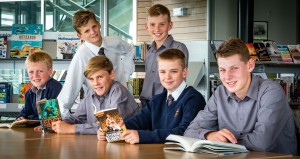Year 9 social studies completed a unit of work, in term 3, on New Zealand Politics.

As part of the unit we hosted three of our local politicians, in the Old Library. Each visitor graciously shared some of their life story with us and then a year 9 student conducted an interview with them. Thanks to Nick Chamberlain, Nathan Harrison, and David Canon who capably handled this task.
On each occasion one of the boys
welcomed our guest formally, this was also a great time to celebrate
our cultural diversity as a school community. One the students would
welcome each guest, in their first language and then translate, then I
would also extend a greeting from the school in Te Reo, and gave
an introduction of our guests profile.
Special thanks to Charles Kennan, who welcomed in Te Reo, Geoffrey Bennani in French, and Parick Zhang in Mandarin.
Clare
Curran, South Dunedin MP, reflected on her time in parliament to date,
and many of the issues currently impacting South Dunedin residents,
saying that heating homes, and repairs from the recent floods was a
priority.
Michael Woodhouse, national MP, gave the boys a view of the world with technology increasing, that in fact this will cost jobs, Giving the figure that 1 in 3 untrained jobs will be lost. He used the example of a team of 10-12 men entering the forest to take down trees, now with the support of technology this can take as few as 2-3. He encouraged the boys if they didn't know exactly what they wanted to do, just get themselves a good solid education, (including a bachelors or equivalent degree) and at the right time you'll find what it is you are passionate about.
David
Clark, North Dunedin, MP, gave an interesting insight into what drew
him to Labour as opposed to National politics. He invited the boys to
visit his office any time with questions or thoughts. David also
explained why he saw Dunedin fared better under labour policies than
National. He also talked with the boys, in response to a question, about
the flag debate, saying he believed that any flag change debate should
probably happen at the same time as we discuss becoming a Republic,
as Nation. David also mentioned that the voting age, in his
opinion, should be changed to 16, so that with a solid course on
politics could be offered at the year 11-12 level, and would guide them
through their first voting experience, and there after they are more
likely to be actively involved in NZ political life.
Many
of the boys engaged with insightful questions, and through this
experience have a greater awareness of the role of politicians, and that
regardless of the area they find themselves working in, in the future,
that we need to have our say. That any Government system is only
as good as the level of participation from the general population, not
unlike the 500 from Ancient Greek times, that took their turn in the
ballot annually to leave their homes and farms to serve in government.




 Open Event Registration - Interested in enrolling?
Open Event Registration - Interested in enrolling? Employment opportunities - click if you're interested in working at McGlashan.
Employment opportunities - click if you're interested in working at McGlashan.